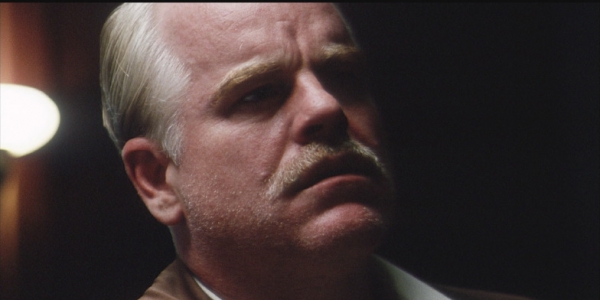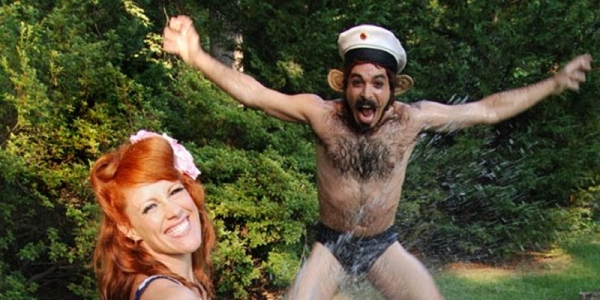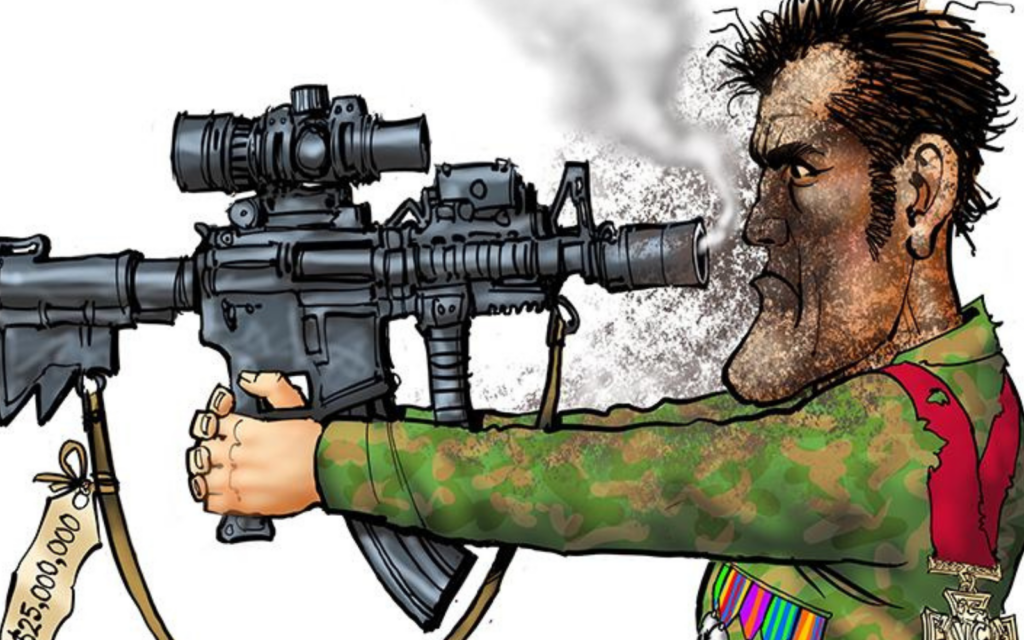Then there was the conference itself, during which the filmmakers fielded the inevitable questions about Scientology and Tom Cruise, and Phoenix unexpectedly shut down mid-answer; and then his co-star Philip Seymour Hoffman came out with the following humdinger: “I think that’s basically what life is: we wake up in the morning going, ‘Fuck, why can’t I just run naked through the streets of Venice and just eat and shit; why can’t I just do that and have it be okay?’”
The main behind The Master, and at the centre of the Venice show, is 42-year-old Californian Paul Thomas Anderson who, six features deep into his career, is already one of, if not the most important director of his generation; a filmmaker of virtuosic talent and staggering ambition, who trades in epics like Boogie Nights, Magnolia and There Will Be Blood, and whose creative control extends from the script into the post-production and marketing phases of his projects (he infamously took his 70mm print of The Master on the road for an informal pre-Venice cross-country tour of America’s famous picture palaces without asking or receiving distributor Harvey Weinstein’s permission).
Sitting at an impromptu plastic interview table in the Excelsior’s grand ballroom the day after the premiere, leaning his grey-streaked mop of hair on one hand and wielding a cigarette with the other, Anderson is circumspect about the angst-ridden press conference: “It did look that way, didn’t it? Yeah… But it was all right. Have you ever been to a good press conference – aren’t they all weird?” On running the gauntlet of Scientology-related questions, he says, “It was kind of a drag – but that’s okay; you know the way that it is now, I think people are seeing that there’s a wider story there. It was never my intention to make something that was provocative – but God, you just say the word [Scientology] and people are very curious.”
Using post-Second World War America as a backdrop, and the nascent Scientology movement as its inspiration, The Master explores the fraught relationship between troubled ex-soldier called Freddie Quell (played by Phoenix) and charismatic older ‘prophet’ Lancaster Dodd (played by Seymour Hoffman), the leader of a controversial self-help movement called ‘The Cause’. It is, as the filmmakers frankly explained in the press conference, based on the early years of L. Ron Hubbard’s movement. More than that, however, Anderson sees it as a kind of love story between two men of similar backgrounds and dispositions – with the key difference and point of friction between them being that only one has learned to master his wild inner beast.
Anderson came to the idea after researching into Scientology’s beginnings, and developed the script over several years, bouncing it back and forth with trusted friends and collaborators. “It was [written] for Phil [Seymour Hoffman], and it would just be like reading pages with him and seeing what he responded to, or triggering conversations and things like that that would allow me to go back and [rethink things]. Phil did say, I think early on, ‘Well this seems like it’s more Freddie’s story’ – and that was really helpful.”
It wasn’t until the edit room, however, that Anderson realised that he was looking at a love story. “There was a lot of stuff that I’d written that was more about the secrets of this book that [Lancaster Dodd] had written; and I was trying really hard to inject a bullshit plot into the movie… And every time I would write that stuff it would just come out like it was bullshit – it was bad. And we even shot some of it, and it was not good. And so it just because clearer and clearer [that this was a love story].”
On moulding the final product, which is more expressionist and character-driven in narrative and impressionist in style than his previous films (and certainly most American cinema), Anderson says, “Hopefully you sort of see through the forest enough to get to the stuff [you’ve shot] that is good and is working. And you hope that an audience will trust these characters that it can just be enough to have them look into each other’s eyes – and that is hopefully fucking goddamn good enough.”
While Anderson is an auteur in the truest sense (and, since his infamously fraught debut Hard Eight, refuses to do the standard Hollywood test-screenings), it’s also apparent that thrives on feedback and from a loose network of friends and peers during every step of his creative process – and it was his friends who saw the first cut of The Master.
“[It] was the most disastrous screenings,” he says, with chagrin. “We all hadn’t seen each other in a long time, so we got together [at my house]; the film was way too long, we still hadn’t figured it out – and we all started drinking, and we’re having dinner, and we didn’t start the film ‘til like 11 o’clock at night. I’m not kidding, all of us were asleep. And it was just these looong faces afterwards… Everyone was jetlagged or tired – and that was our test screening. We were basically like, ‘Alright, now we’ve gotta get back to work.’”
Did he regret popping the film’s cherry that way? “Yes (laughs), yes. It was very unpleasant. (pause) But it was good… I mean, I have enough friends – and all of us who’ve worked together for so long are kind of hard enough on each other that we can be our own test audience… Inevitably, someone’s fighting for something that somebody else doesn’t want.” But at least he gets final say, right? “Yes,” he says smiling, “but that doesn’t mean the fights are any less intense.”
BY DEE JEFFERSON







